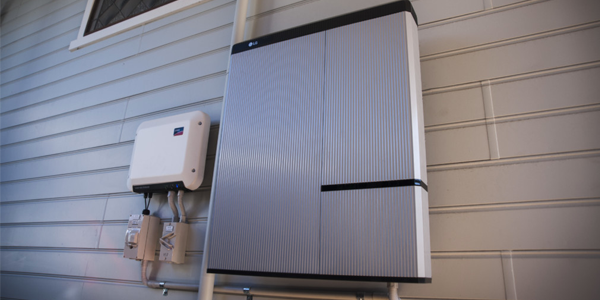Is a solar battery worth the investment in 2018?

Installing a solar and battery storage system is an enticing idea for many people fed up with the rising cost of electricity. However, a solar battery system will set you back many thousands of dollars and it's important to know how it works and whether it’s worth the investment.
How does a solar battery work?
A solar battery is simply a battery charged with energy from solar panels.
An average household tends to use the most power in the morning, and then again in the evening. When no one is home to use electricity during the day, all the electricity you generate from your solar panels disappears into the electricity grid. While it's great that you're making money from the energy you send to the grid during the day, later when you need to use electricity, you have to buy it from the grid and this is counterproductive.
Instead of sending all the energy your solar panels are generating during the day back to the electricity grid, with a solar battery you can store the energy your solar panels generate for use at night.
How much does a solar battery cost?
The cost of a solar battery varies depending on the size and quality. Although prices have come down dramatically, systems will still set you back several thousands of dollars.
Prices for solar batteries largely depend on the storage size, and cost around $1,000 – $2,000 per kWh storage capacity.
If you don’t have a solar panel system, that can cost you anywhere from $3,000 to $12,000 depending on the system size you choose. Most households who add a solar battery opt for a 4kW solar system, which will cost around $4,000 to $7,000.
A solar battery system will take several years to pay off, but you can reduce the time it will take to pay off by installing smart software that gets the best value from your solar battery.
Your electricity bill will reduce because with a smart home energy management system installed you won’t be relying on as much energy from the grid and you can store the solar energy you’re producing during the day to use at night. Also any excess solar power you produce can be sold and used to offset your electricity bill.
How much will you save by adding a solar battery?
Recent research from Solar Choice found that by adding a solar battery most people received between 9-16 per cent return-on-investment and an ABC article reported that a family of four in Sydney cut their electricity bill by 90 per cent after adding a solar battery system.
However, adding a solar battery is only one part of the equation. To get the best value from your battery it's what you do and how you use it where you can get the most savings. Adding a smart home energy management system like Reposit that provides you with a way to track, and change your habits can mean the difference of a few years from your solar battery payback period. Large savings can be made by simply using electricity in smart ways.
Save further by adding Reposit to your solar battery
It’s possible to change your energy use habits on your own, but if installing a solar battery is what makes you actually do it, then that’s a big incentive.
Working with your solar panels, and solar battery Reposit can predict how much electricity your panels will create, and will know when to store this in your battery to lower your power bills.
Using Reposit you can get predictions on when your solar panels will generate energy, and when your solar battery will be full. When your solar battery is full and your solar panels are producing more energy than your household is using, any energy you use at home during this time is ‘free’.
In addition, Reposit is designed to make sure you always pay the lowest possible price for your electricity.
Some electricity plans charge different prices at different times throughout the day for using energy. Where peak (high) energy usage times (mornings and evenings) are charged at a higher rate and off-peak power (middle of the night) is much cheaper.
With Reposit you can capture this value. Reposit, will store the electricity generated from your solar panels in your battery for you to use at peak times and tell your battery to buy and store electricity in off-peak times.
